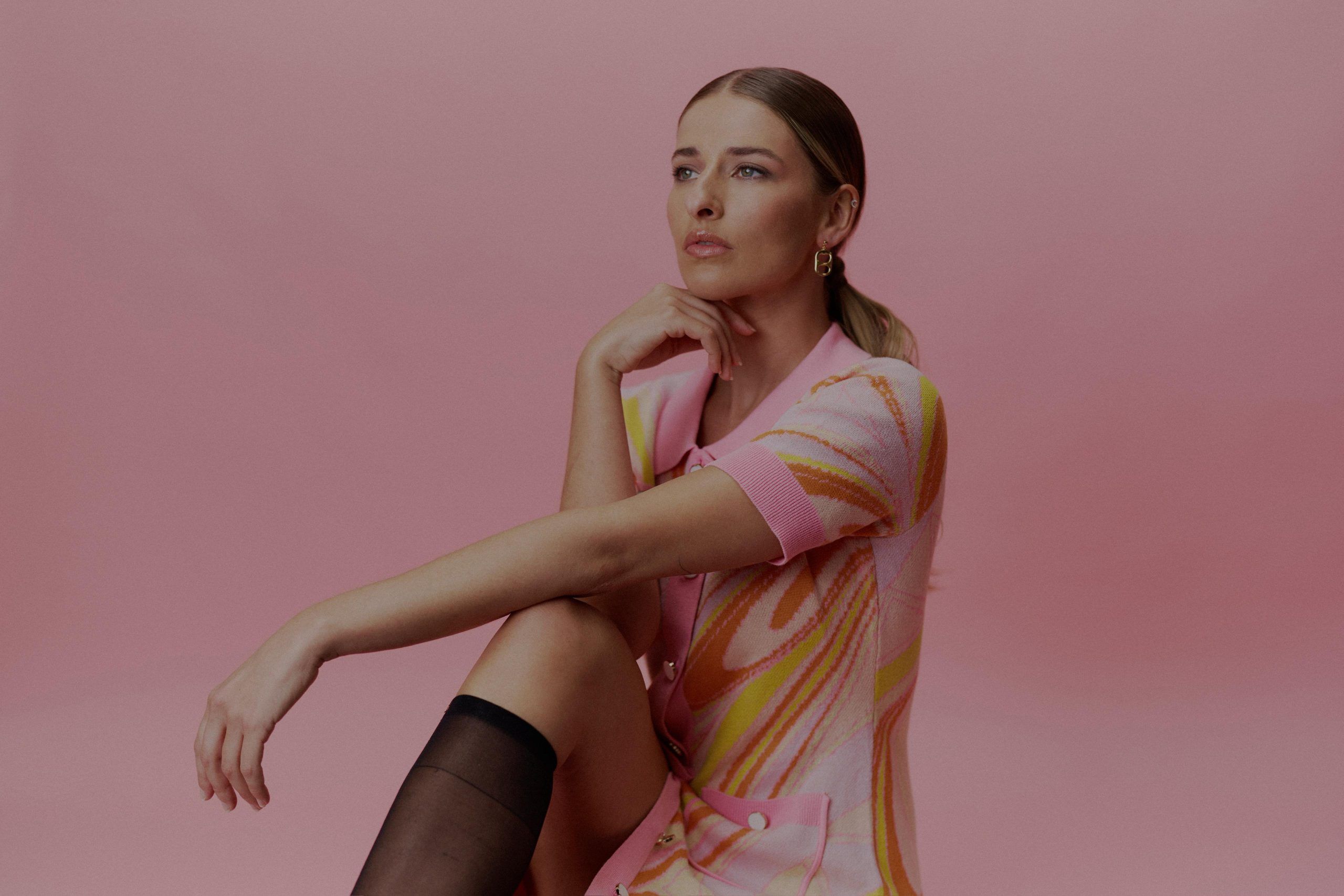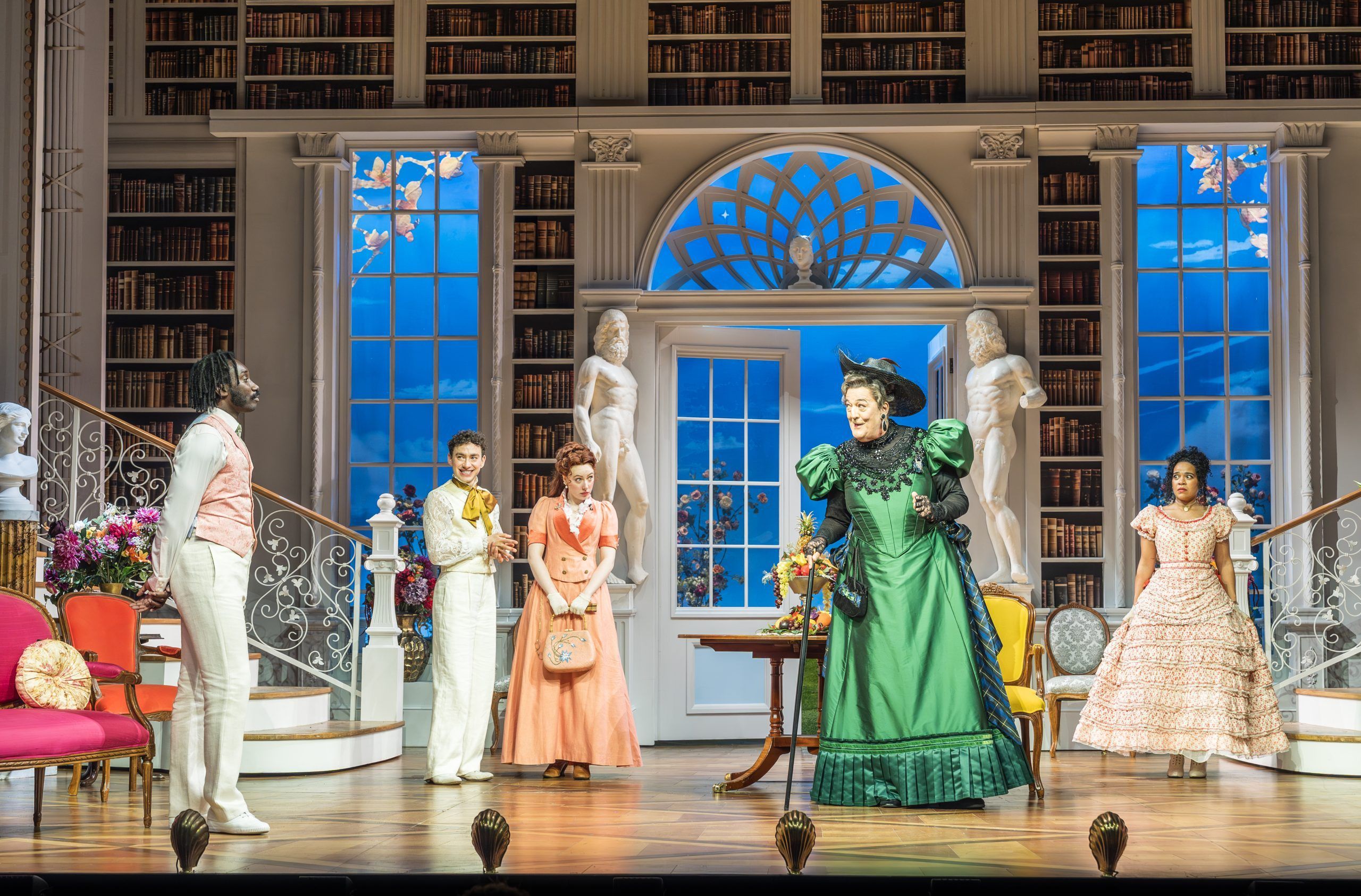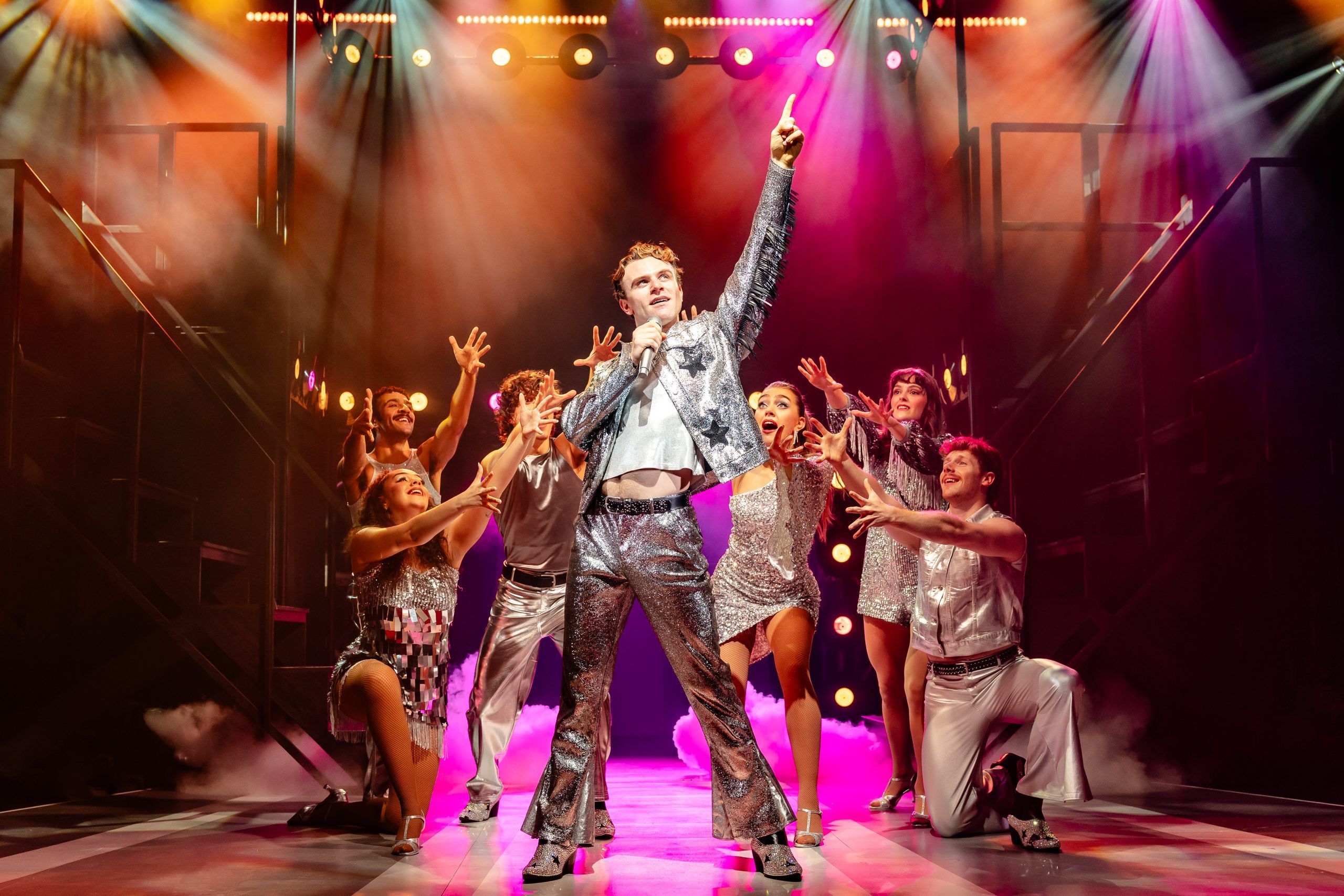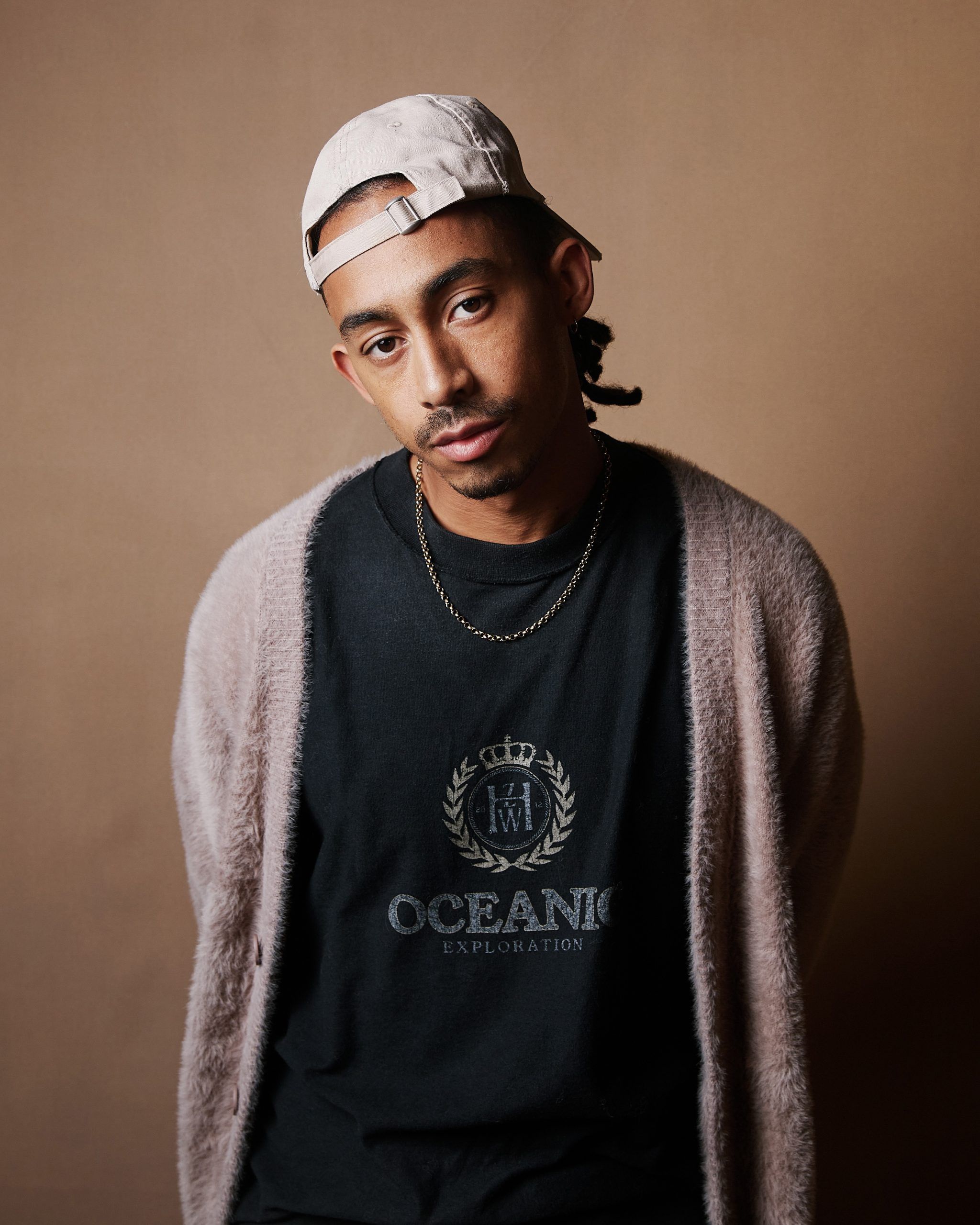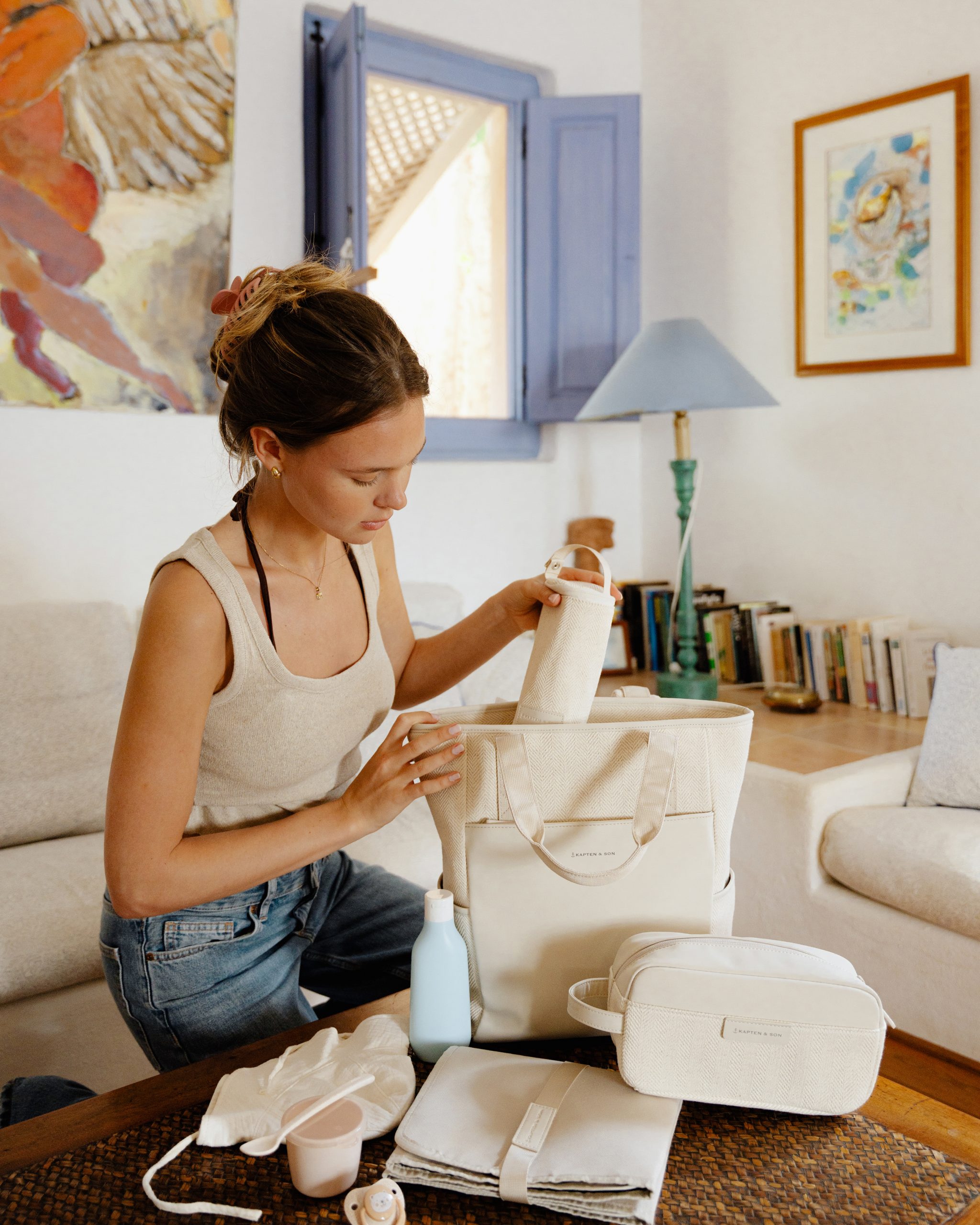Georgina Castle has fast become one of the West End’s most versatile leading ladies. From Sophie in Mamma Mia! and Doralee in 9 to 5, to most recently playing the apex predator herself, Regina George in Mean Girls (check out our review here). When 1883 spoke to her in 2024 (here) she was just beginning her Plastics reign. Since then, she’s performed as Regina on the BBC, lit up the stage at the WhatsOnStage Awards, and earned a WOS nomination for Best Performer in a Musical. Now Georgina takes on her first originating lead in a brand-new musical adaptation: Lucy in 50 First Dates. Ahead of the world premiere, we talked childhood dreams, the highs and lows of Regina, falling in love on stage and off, and why this rom-com adaptation might be her most creatively fulfilling challenge yet.
Hi Georgina, How’s the rehearsing going?
Good. Yeah, it’s going really well, actually.
And it’s really nice to be able to say this because so many times you have to lie through your teeth and go, yeah, everyone’s lovely, or the director’s creating a great atmosphere. But this time I can say it sincerely, which is really nice.
We’ve got our first run-through of the show tomorrow morning, which is always a fun time.
So I’m taking up proper last-minute cramming time, really. I assume by now you’re so off-book you’re fine?
Sort of, but it’s because we’ve got the writers in the room. They keep changing things as we go. You think you’ve got something in your head and then Steve Rosen or David Rossmer is like, no, we can make it better. Which is great, because it means you hopefully get a really strong finished product they’ve been part of all the way through. But it does mean the lines are nowhere to be found.
But it’s only one act. We’re straight through, which is the first time I’ve done a show like that. I think it’s an hour and a half, maybe 90 or 100 minutes.
I read somewhere that you thought you were going for Karen, in Mean Girls, at first?
I did. I remember. I just always thought I’d be a Karen. I don’t know why. I think maybe I just heard the Regina stuff and thought, that’s too high, I don’t know if I can sing that.
But then when the audition material came through, Simon was like, no, you’re definitely a Regina. And again, I was like, okay, there’s a compliment in there somewhere… or am I just – what’s he saying? Are you just saying I’m a massive bitch so that it comes naturally?
And he was like, no, you’re just a Regina. I did say to my agent, I was happy to be seen for either Karen or Regina. Apparently, the team just went straight away, no, she’s Regina. So I thought, well, okay.
He just meant you’re going to rule the school, you know?
Yeah. And oh my God, it was the best. I remember I was advised at the start of the process not to say that I enjoyed being mean, because otherwise people might think I’m mean in real life. But I loved it. I don’t know what that says about me, but I had the best time.
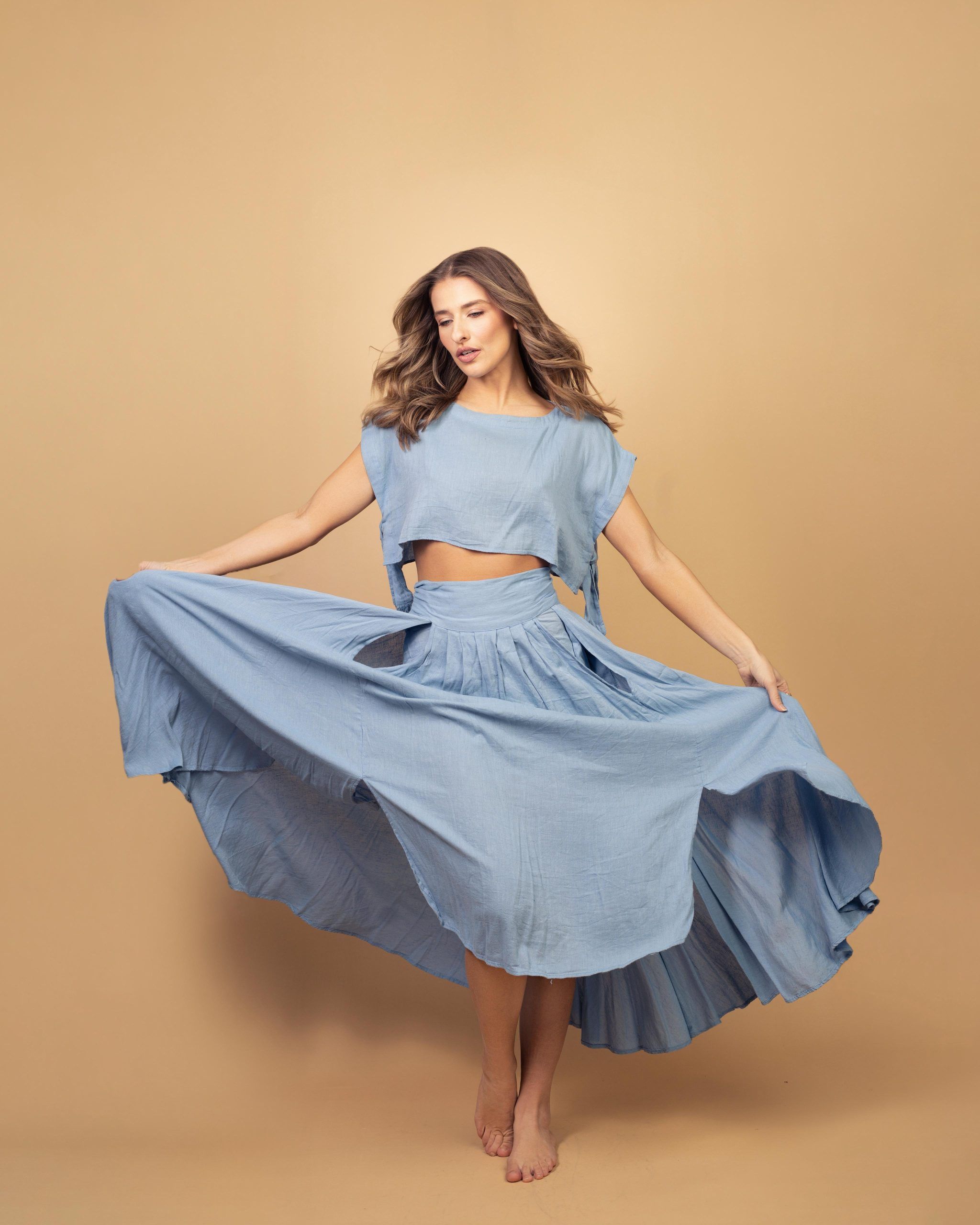
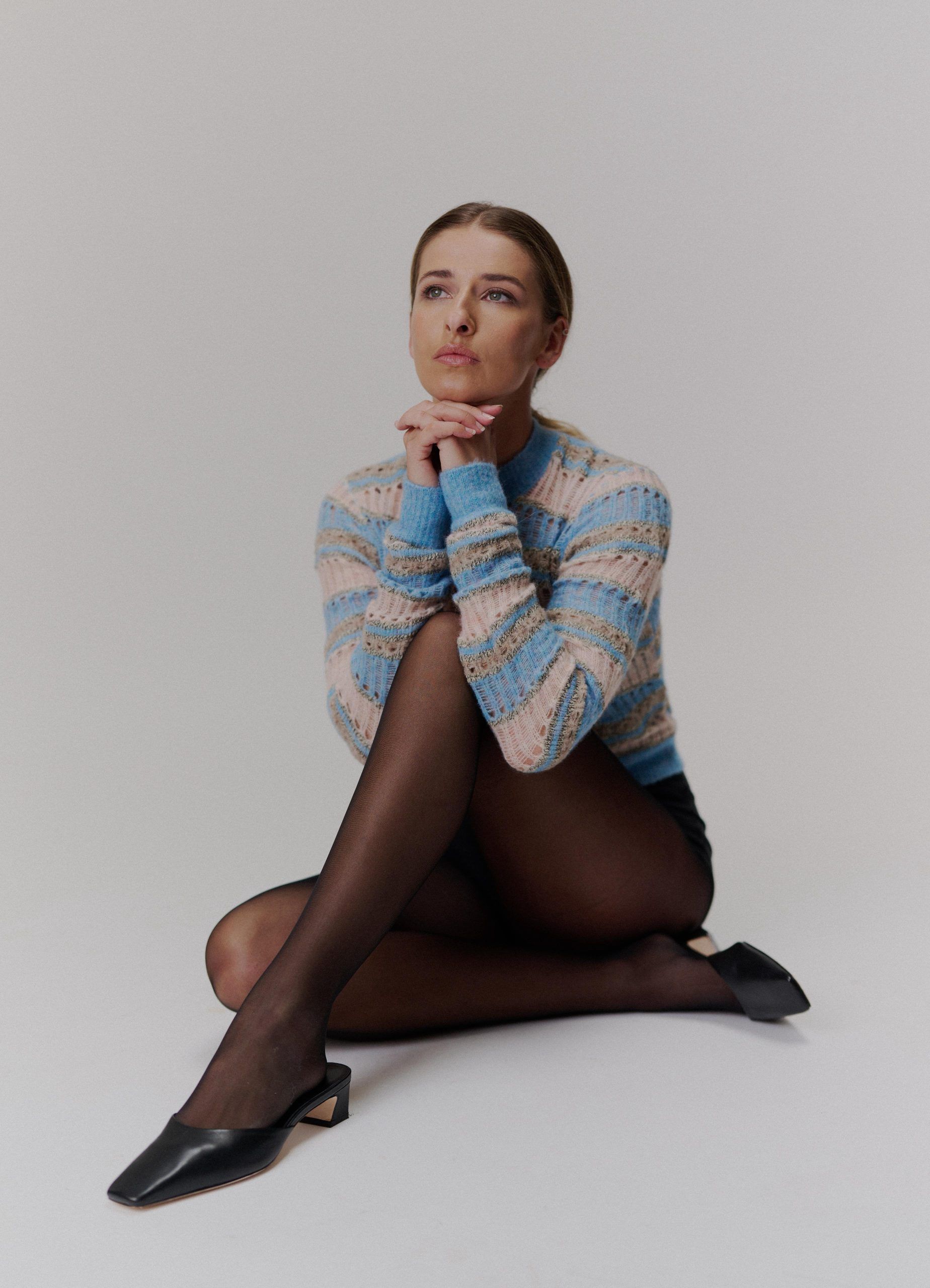
Playing a baddie is amazing.
It’s the best. And it’s like therapy every night, because we all walk around just living our lives trying to be nice to everyone. And she just didn’t care. It was so refreshing.
I’ve said before that if I’m going to take anything from her, it’s not the meanness, but the confidence – the ballsiness to just be who you are.
You’ve said that watching Mamma Mia! on your 11th birthday was the moment you decided you wanted to be Sophie. Can you still remember that feeling?
I do. My dad said I was as young as three when I first pointed at the stage and said, I’m going to be up there one day. Parents take that with a pinch of salt, but I meant it.
On my 11th birthday we saw Mamma Mia! and when Sophie came out in that green sparkling top, I thought, that’s it. That’s what I want to do. Dream roles change as you grow, but for me it was always Sophie in Mamma Mia! and Sandy in Grease.
Your dad has said your family always supported you. What were those early conversations like when you chose such a competitive career?
Both my parents were keen for me to finish my A-levels and have something to fall back on, which I hated at the time. But I’m glad now. They wanted me to go into it without rose-tinted glasses. They reminded me I’d probably spend time unemployed – which has been true. I’ve done all sorts of odd jobs, from dressing up as a Weetabix to handing out smoothies in a bikini.
I think they were nervous about whether I was actually good enough. As a parent you want to believe your child is talented, but you don’t really know until the world tells you.
How did your training at the Central School of Speech and Drama help to shape you as a performer? And what parts of that training do you still carry with you now?
That’s not something I get asked much. My training at Central was very acting-focused, and I actually found the three years really difficult. The clichés are true – they tear you apart so you’re emotionally available to be moulded. It’s important as an actor, but it leaves you vulnerable afterwards.
So I have a complicated relationship with my training, but I’m grateful for it now – especially doing 50 First Dates. Lucy goes through so much every day. Every morning she either gets told, or discovers again, that she has memory loss. It’s emotional and intense. She goes through a breakup, the highs and lows of her life reset daily.
I’m tuning into that darker training, which feels so different to the glossy musicals I’ve done before. I’m loving being able to draw on that intensity.
Was there a first show, audition or role where you thought, oh my God, this is really happening?
It happened slowly and naturally. My first job was Dirty Dancing, a six-month UK tour, and I had the best time. At that point you don’t take things too seriously – I was going out, having fun, enjoying the show. Then it flowed into Mamma Mia! and more work.
I was lucky not to be catapulted straight into something high-pressure. I could find my feet and figure out how I wanted to work. I’m grateful for that – especially after Mean Girls. And being in my early thirties meant I could stay calmer and trust what I’d already done rather than panicking about the scale of it.
I played Lisa in Dirty Dancing, the goofy older sister. It wasn’t the lead, so there was no pressure to carry the show. At 22 you can go out, have a big night, and still bounce back – which is not the case anymore! Lisa was so fun because she’s silly and you can be as goofy as you like. Doing the hula song was always a giggle, and making people laugh on stage is the best feeling in the world.
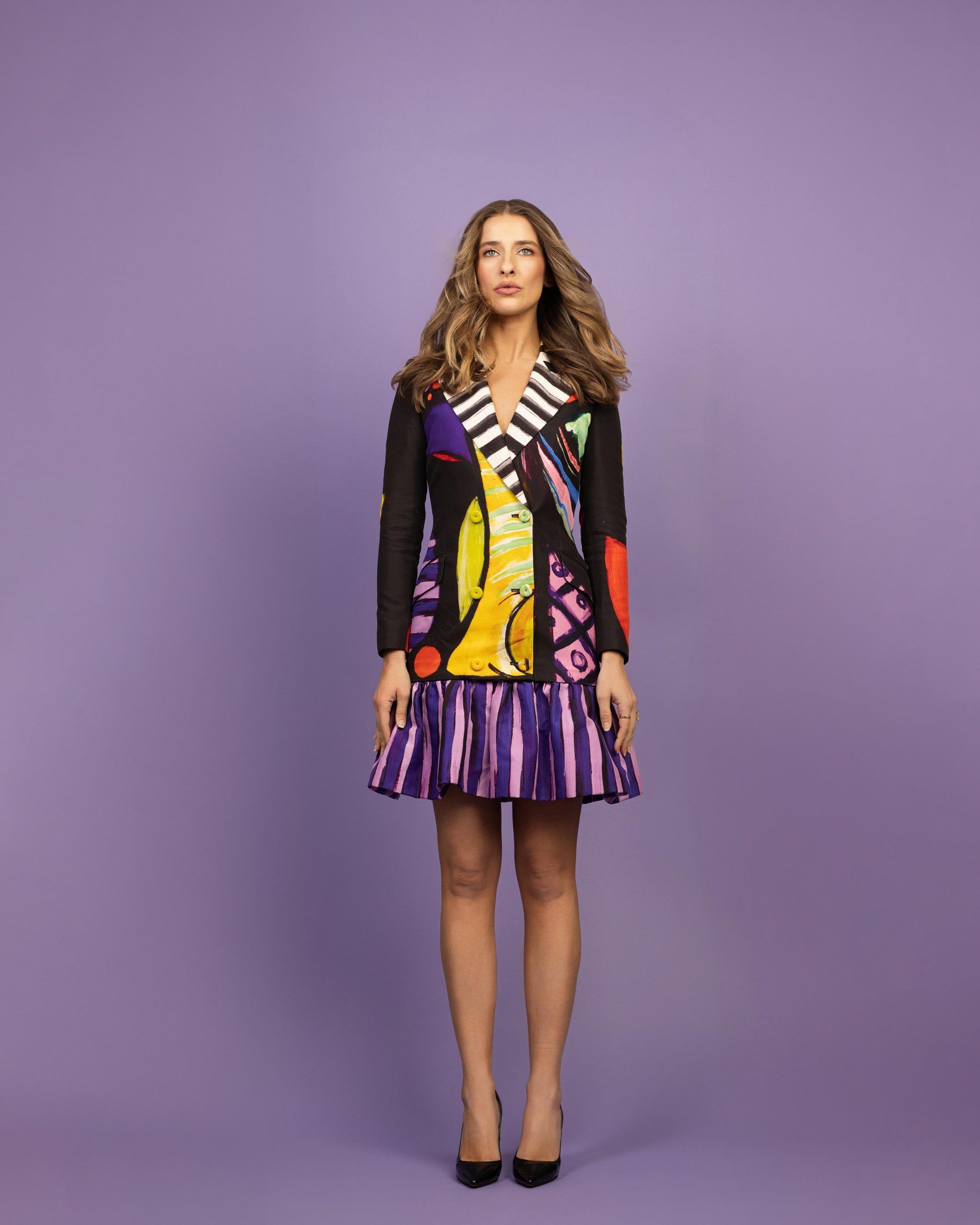
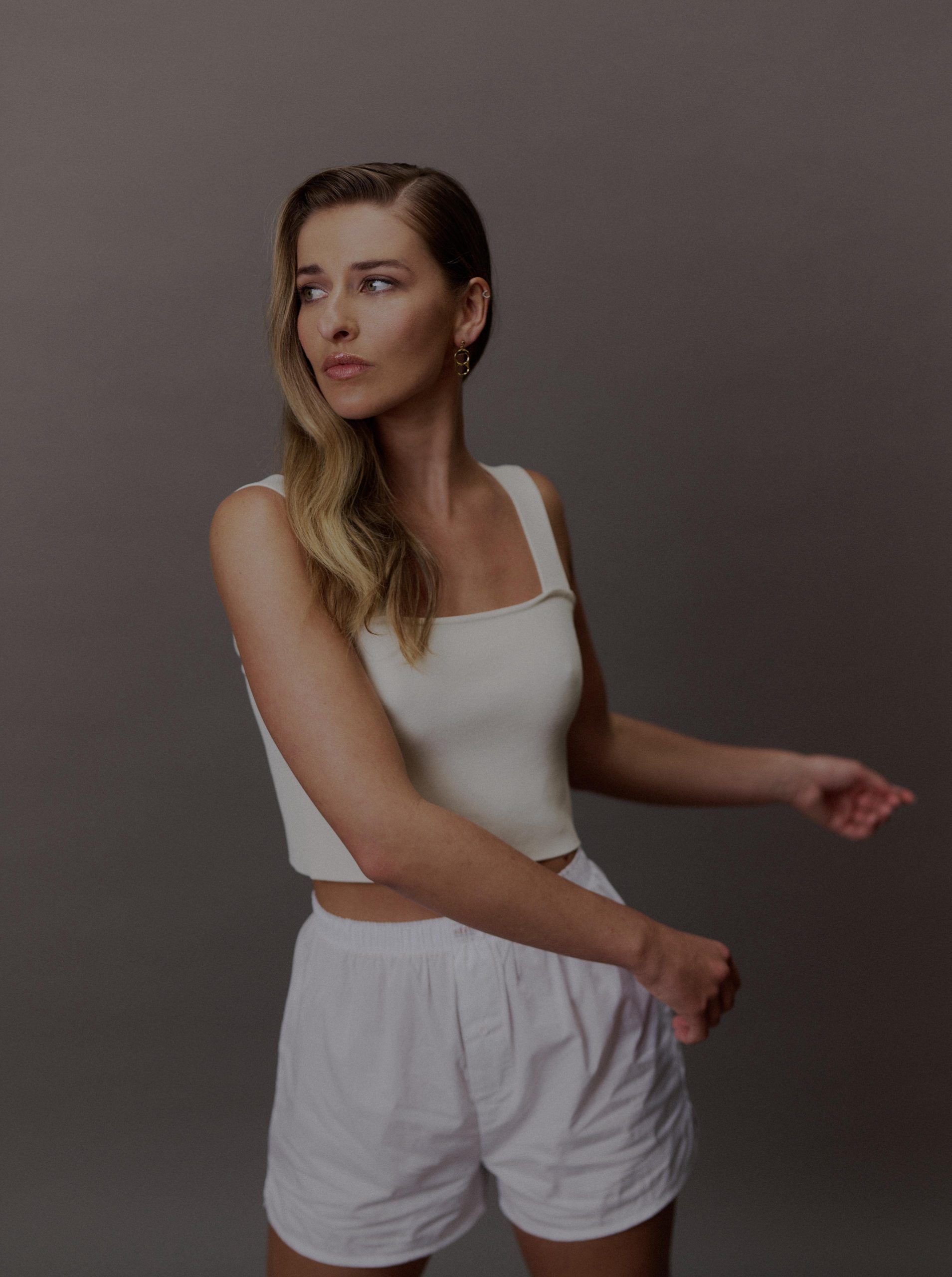
From Dirty Dancing, Mamma Mia!, 9 to 5 and Cinderella through to Mean Girls and now 50 First Dates, you’ve played such a range of women. Which role has challenged you the most?
Regina was challenging because of the pressure. It was a brand-new show, and everyone has such a specific idea of Regina that I felt I had to be her for everyone – which you can’t.
But in terms of character work, Lucy is the most challenging. She’s wonderfully positive, but goes through awful, heartbreaking things and resets so quickly. Even within a scene change it’s a new day and she’s forgotten everything. You have to wipe the slate clean emotionally and move on. Working out her path through the show has been my biggest challenge, but also my favourite.
Do you have a method or something you do to go from being full of emotion to suddenly starting fresh?
Not yet, actually – that’s what I’m still working out. A lot of my training at Central was rooted in Stanislavski, and my acting teacher Stanojevic built on that. She was utterly terrifying but brilliant, and would constantly say, I don’t believe you. So much of it was about making it real for yourself so it’s honest on stage.
The exciting challenge now is figuring out how to do that reset quickly – and then still sing and throw in some jazz hands on top.
When you first stepped into the West End in Mamma Mia! as a lead, did it feel like the fulfilment of that childhood dream, or was it different once you were actually living it?
It was the best. Especially with Mamma Mia!, because the show starts with the curtain going up on Sophie. I remember on that first night looking out at my parents. For them it was, oh my God, she’s actually doing it. That made it real for me.
It was also the last show my grandparents saw before they passed away, so it was really special. My granddad had walked with a stick for as long as I’d known him, but in the finale he was up dancing. The power of ABBA – it does magical things. Even the cast said, we always know where your granddad is.
So, Rachel McAdams in the film, Taylor Louderman on Broadway – how did it feel stepping into their Louboutins?
“…my Louboutin-ed heel!” Honestly, I was just excited. I never thought I was going to get it, so I went in for fun – to be the queen bee. I’d listen to the music and sing in my head, “my name is Georgina George,” just to get into it. A lot of that was down to director Casey Nicholaw, who creates such a friendly audition environment. From then on I felt connected to the character.
Even in the sitzprobe – the first rehearsal with the orchestra – the music did so much of the work for me. Those sexy, bassy undertones make you feel instantly cooler.
When you play someone nasty, you still have to find a way to sympathise with them. Was that a challenge with Regina?
Yes – and I remember the director saying that in World Burn we don’t want to hate her. We want the audience, in a weird way, to root for her. She’s nasty and manipulative, but she also has insecurities. None of us are just one thing. I wanted to find that texture rather than just play her as a bitch, because she’s smarter than that.
How did you build Regina’s blend of vindictive but vulnerable, confident but insecure?
I tried to bring as much of myself to her as possible. Obviously it’s still a character, but you want to tap into that part of yourself that can be mean or nasty. That’s why Mean Girls is so special – everyone can relate to the characters. You might see yourself in Gretchen’s neediness, or in Damian giving too much away. Their behaviour is so human.
I also had a “Regina perfume.” I’d spray it before going on stage and think, let’s go. I’m allergic to perfume, so I probably shouldn’t have done it, but it became my Regina smell.
What’s your favourite memory from your time in Mean Girls?
It’s hard to pinpoint because there were so many highs. Once you’re in the groove with an amazing audience full of energy – those were the best nights.
I felt especially close to Grace Mouat and Elena Jessie, who played the other Plastics. We’d always have a little check-in before the show when we were on the table, ready to come forwards, and that connection was a real highlight for me.
There’s nothing better than when the audience are on your side and you’re in a show you love. World Burn was a standout – throwing paper around, fire everywhere, going up in the lift – the coolest thing ever.
You’ve called Regina a total gift of a role. What did playing her mean to you personally and professionally?
It was amazing to originate a role here that so many people were excited to see. What I love about theatre is the live aspect – having an audience, getting that feedback. Knowing there was anticipation made me even more excited to perform.
Theatre is alive – it’s a two-way thing. You need to know where the laughs land, what people respond to, and you learn that over a run. Regina was such a fun way to keep that connection alive, because the role grew and changed with the audience.
Let’s talk 50 First Dates. I believe this is your first time originating the lead role in a brand-new show?
Yes, and it’s the best feeling. Creating something from scratch is fun but scary. There’s no track – you just have to trust your instincts, throw out ideas, see what sticks. It’s the most creatively fulfilling thing I’ve done.
There’s been a lot of mystery around the marketing. It’s not the film – so what is it? Is it still set in America?
We’re set in Florida now, in Key Largo – not Hawaii. It’s loosely based on the film, the heart of the characters is the same, but there are new ones too. You see more of Lucy’s relationship with her brother and dad, which is lovely. The cast is amazing and open, which makes it less scary doing vulnerable scenes. Everyone’s put their hearts on the table. Even though I spend most of the second half crying, it’s been fun.
I loved the dad and brother in the film – they just wanted to look after her.
That’s exactly it. They’re the ones who’ve sacrificed the most. Henry finds a way to make things easier, but it’s her dad and brother who’ve given everything.
It sounds like the story is less about fixing her and more about finding ways for her to cope.
Yes – and also about giving her dreams and aspirations. She has hope. Even knowing about her memory issue, she’s hopeful some memories might return, or that she can make the best of her situation. There’s no self-pity with Lucy. She’s glass half full, never half empty, which is gorgeous to play.
Drew Barrymore played her with so much warmth and love for people. Did you watch her performance in preparation?
Oh, Drew’s energy is incredible – no pressure! But you can never be anyone other than yourself. Even if I tried to copy Drew Barrymore or Rachel McAdams, it would be terrible. With both Mean Girls and 50 First Dates I did the same – once I got the job, I watched the film once, then put it aside.
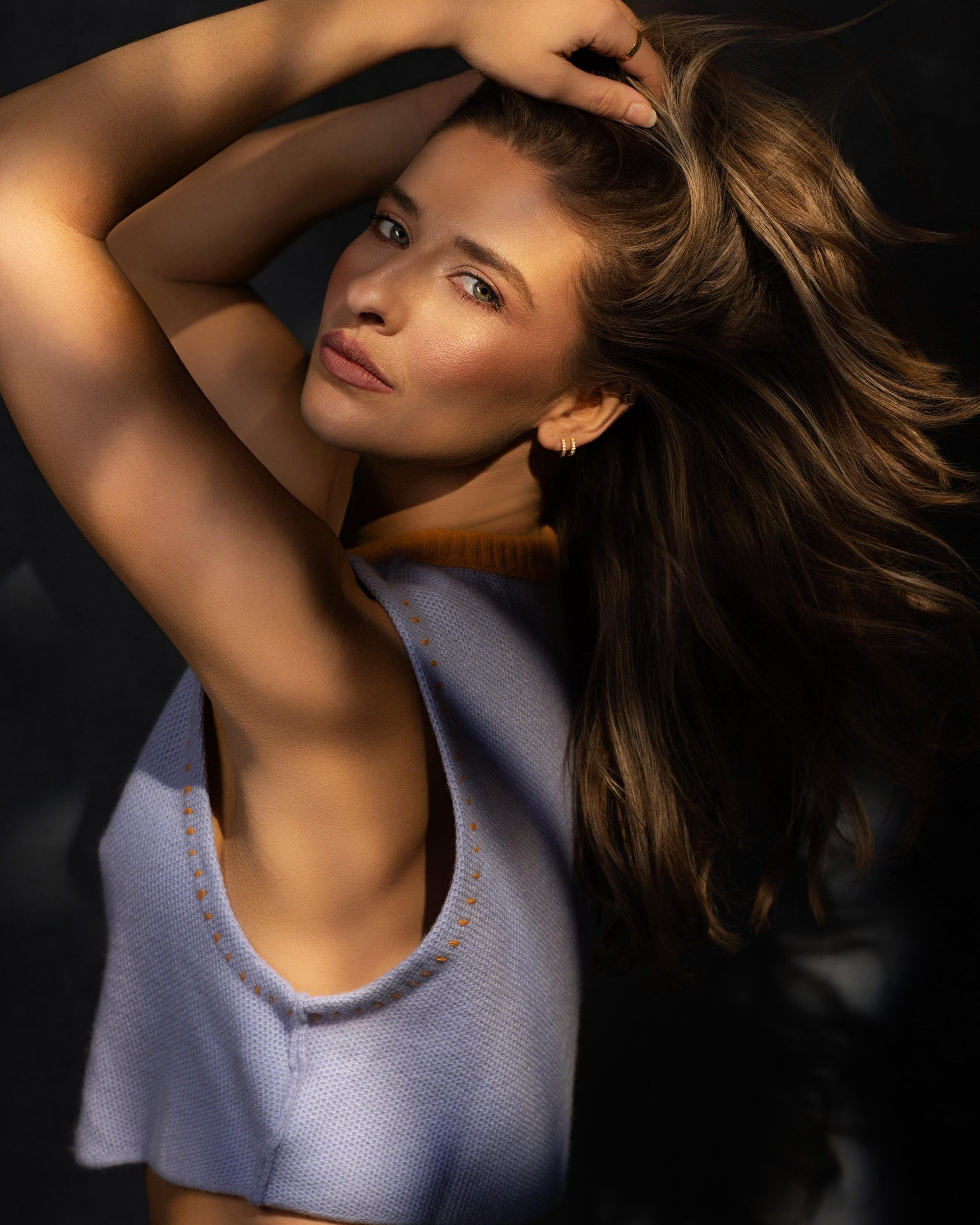
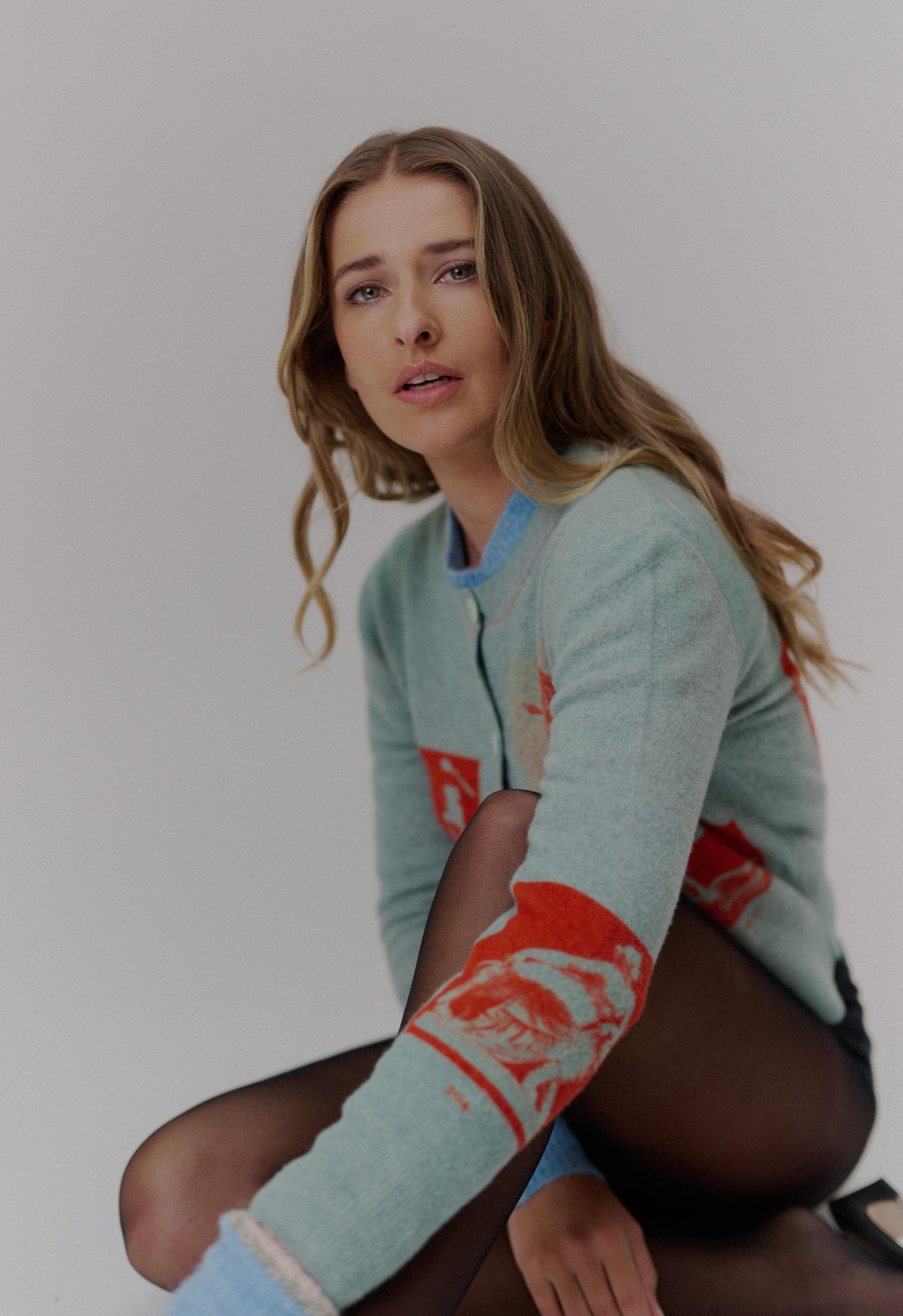
You’ve worked with Casey Nicholaw before on Mean Girls. What excites you most about working with him again?
This feels so different to the beast that Mean Girls was. That was huge, full of big showy numbers, whereas 50 First Dates is intimate. Smaller cast, ensemble feel.
He’s really excited, and with the writers in the room the process feels dynamic. Everyone has great energy and we can’t wait to show people what we’ve created. I cried three times just reading the script – it’s so touching.
The show is about love, resilience, second chances. Which of those themes feels most personal to you right now?
Love – very personal right now. I’m getting married in nine days! My hen do was outrageous – me living my Mamma Mia! fantasy on a Greek island with my friends all singing Super Trouper.
My fiancé, Simon Lipkin, has been wonderful through all of this. He’s a brilliant actor – Olivier Award-nominated – and he gets the reality of me kissing someone else on stage every night.
We met playing opposite each other in Elf, when Simon was Buddy. He still finds it baffling that I fell in love with him in that ginger wig and pointy shoes, but I did. He was so talented, and the kindest man in the world.
Since this interview, Georgina and Simon are now married – you can see the gorgeous photos and videos on her Instagram.
You’ve said one of your mantras is to keep finding the fun. How do you hold onto that spirit when the schedule gets gruelling?
It does get tough – there are definitely days that feel more like work than others. But I genuinely find so much joy in what we do, in theatre and acting. And it’s never the same.
People ask how you keep finding the joy in an eight-shows-a-week schedule, but the truth is no two shows are alike. You come in with whatever energy you have that day. Today, for example, I was a bit miserable because it was raining and I thought, it’s going to rain on my wedding day. I let that inform the show, and it changed how I said things. As long as you stay in tune with yourself, you can always find the fun.
At the WhatsOnStage Awards you and Simon were described as a West End power couple. How do you both stay grounded when people in the industry say things like that?
That’s hilarious. We both just find it funny. At heart we’re still those two teenagers who loved getting up on stage, doing jazz hands and singing a song. We’re goofy like that.
Simon is so unaffected by external things, which I really envy. I just think it’s great – more people talking about us, why not?
If you could go back and give advice to that 11-year-old watching Sophie on stage, what would you say?
Be brave enough to trust your instincts and to put suggestions forward. It takes a while to find your voice, or to believe that what you have to say matters, especially when you’re young and think everyone knows better. And maybe they do. But every now and then it’s worth saying, could we just run this once more, or I’ve got an idea – would that work? Trust that you’re part of the creative process too.
Are there any roles or genres you’d love to tackle next that might surprise people?
I’d love to do something darker and more intense. I’ve done so many joyful musicals, which I adore, but it would be a challenge to explore something more painful. It’s important to keep pushing yourself out of your comfort zone. Lucy in 50 First Dates already does that for me, but yes – maybe something really dark one day.
What do you want audiences to take away from 50 First Dates when they leave the theatre?
This might sound cheesy, but I want people to hold their loved ones a little closer. We don’t know how much time we have, or when something could change. The most important things in life are health and human relationships. 50 First Dates explores both in such a beautiful, heartwarming, charming way. I hope people leave and squeeze the people they love just that little bit tighter.
50 First Dates is playing at The Other Palace until 16th November 2025.
Get your tickets at 50firstdatesmusical.com
Follow Georgina on Instagram for regular updates that will always brighten your day!
Words by Nick Barr
Photography By Pip and Paul Madeley

